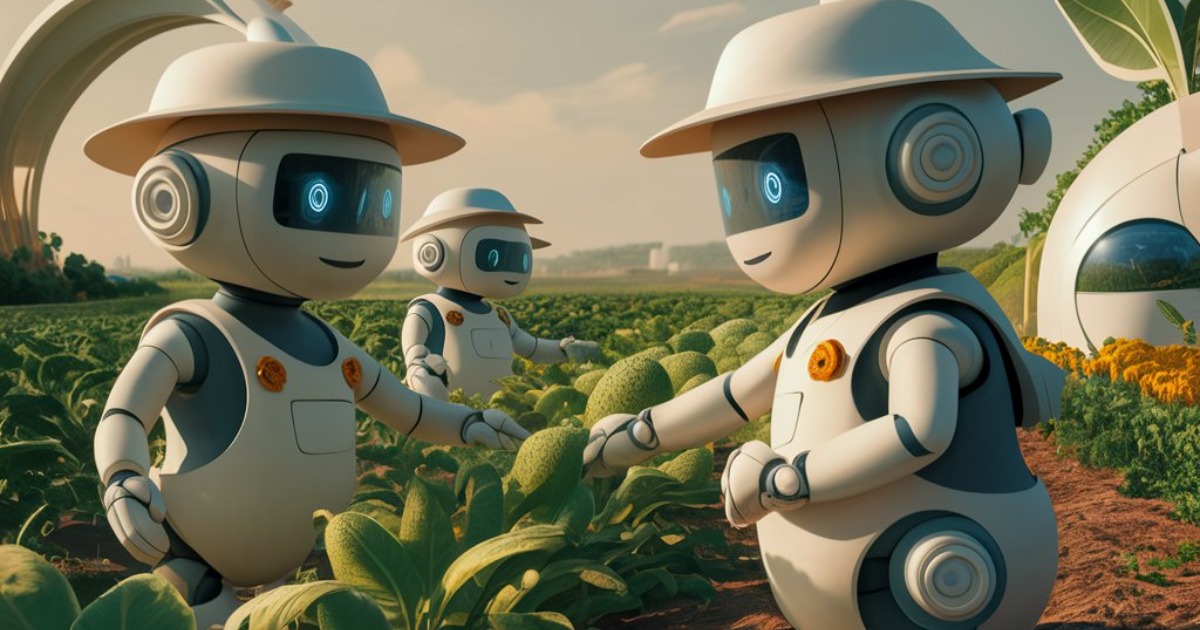Sustainable agriculture is now a key area because of climate change, an increasing population, and the need to save resources. Artificial Intelligence (AI) is key in causing a revolution in farming practices with AI chatbots leading this change. These smart helpers give farmers advice at the moment they need it, improve how they manage crops, and support green farming methods. In this article, we explore the contribution of AI chatbots to sustainable agriculture, their advantages, problems, and what might happen next.
Understanding AI Chatbot’s Role in Sustainable Agriculture
AI chatbots in sustainable agriculture are communication tools that employ artificial intelligence to help farmers manage their crops, animals, and resources better. These chatbots can be part of many platforms like mobile apps, websites, and messaging services. They offer quick access to data, guidance, and help aiding farmers in making choices that support sustainability and productivity.
Key Benefits of AI Chatbots in Sustainable Agriculture
- Precision Farming AI chatbots aid precision farming by giving farmers insights and advice from analyzing data from sensors, weather reports, and satellite photos. They suggest the best times to plant, water schedules, and ways to deal with pests. This accuracy helps in lowering wasted resources and increasing the number of crops grown.
- Resource Efficiency Using resources well is important for farming that does not hurt the environment. AI chatbots instruct farmers on the right ways to manage water, use fertilizer, and save energy. By making the best use of resources, these chatbots aid in cutting down the harm farming does to the environment and in keeping important resources safe.
- Pest and Disease Management AI chatbots help identify and manage pests and diseases that threaten crops. They analyze plant photos using image recognition and machine learning to offer treatment suggestions. Early finding and right timing can prevent crop losses and lessen the use of chemical pesticides.
- Climate Adaptation Climate change brings big problems to farming. AI chatbots offer farmers real-time weather updates, climate predictions, and guidance on adaptive farming methods. This helps farmers make early decisions to lessen the influence of climate variability and maintain the stability of their farming activities.
- Knowledge Sharing and Education AI chatbots help in sharing knowledge and ongoing learning for farmers. They answer questions, give access to agricultural studies, and spread details on farming . This gives farmers the understanding and abilities required to use methods that are more sustainable and productive.
Uses of AI Chatbots in Sustainable Farming
- Soil Health Monitoring
AI chatbots can aid farmers in monitoring soil health through data analysis from soil sensors and offer advice on managing it. They provide guidance on rotating crops, covering crops, and adding organic materials, essential to keep soil fertile and to cut down erosion. - Water Management
Managing water well is crucial for agriculture to last. AI chatbots can help in planning irrigation setups timing irrigation with soil moisture and weather predictions, and encouraging methods like drip irrigation to save water. This assists in cutting down water use and saving this important resource. - Crop Selection and Rotation AI chatbots offer advice to choose and rotate crops according to soil condition, weather, and market needs. This helps in selecting and rotating crops to keep the soil healthy decrease pests, and increase money gained while supporting sustainability.
- Livestock Management AI chatbots also help in sustainable animal farming by giving tips on animal health, food, and well-being. They help in keeping track of animal health, disease detection on, and better use of animal feed, all leading to ethical and sustainable animal farming methods.
- Supply Chain Management AI chatbots assist farmers in managing their supply chains better by offering details on market trends, pricing, and logistics. This helps farmers to organize their production and distribution better cutting down waste and securing a constant supply of fresh produce to markets.
Challenges and Limitations of AI Chatbots in Sustainable Agriculture
- Data Quality and Availability The work of AI chatbots relies on the quality and availability of data. In many rural places, there might be a lack of reliable data sources like soil sensors or weather stations. This can limit the correctness and value of chatbot suggestions.
- Digital Literacy Using AI chatbots requires a basic understanding of digital tools among farmers. In areas with low tech use, farmers might struggle to use these tools well. Training and learning are needed to bridge this gap and encourage the broad use of AI chatbots.
- Infrastructure and Connectivity Reliable internet and structures are necessary to use AI chatbots. In isolated or undeveloped areas weak internet stops the use and usefulness of these devices limiting their help in sustainable farming.
- Ethical and Privacy Concerns AI chatbots need data collection and processing leading to ethical and privacy worries. It is vital to handle data regarding privacy and safety to keep trust and protect the interest of farmers.
- Integration with Traditional Practices Merging AI chatbots with usual farming methods can be tough. Farmers might resist new technologies or might struggle to include chatbot advice in their old processes. Work needs to be done to make sure AI chatbots support rather than disturb usual practices.
Future Prospects of AI Chatbots in Sustainable Agriculture
AI chatbots have a promising future in sustainable agriculture, with many advancements coming soon.
- Enhanced AI Capabilities Advances in AI technology will result in more intelligent and capable chatbots. These chatbots will offer more exact and personalized counsel. Better natural language handling and machine learning formulas will enable chatbots to have a better understanding of and responses to farmers’ needs.
- Integration with IoT and Big Data The integration of AI chatbots with the Internet of Things (IoT) and big data analyses will boost their capabilities. By using data from connected devices and big data sets, chatbots can provide more holistic insights and suggestions to support sustainable farming methods.
- Tailored Solutions for Diverse Farming Systems Future AI chatbots will provide more specific solutions to meet the different needs of farming systems. These range from small farms to big commercial farms. This will make sure the chatbot’s suggestions help many types of farms.
- Increased Accessibility and Usability Work to make AI chatbots easier to use will help farmers all over the world use these tools. This work includes creating easier interfaces supporting many languages, and giving training to help farmers use these technologies well.
- Collaboration with Agricultural Stakeholders Working with AI developers agricultural researchers, and farmers will lead to the creation of more fitting and efficient AI chatbot solutions. By teaming up, these groups can help make sure that AI chatbots tackle the true issues that farmers deal with and help in maintaining more lasting agricultural methods.
Conclusion
AI chatbots are bringing a big change to sustainable agriculture by giving farmers the resources and information necessary to use more efficient and green methods. Although there are challenges to conquer, the vast benefits of these smart agents are significant. As technology develops, AI chatbots will become more essential in supporting sustainable agriculture and guaranteeing a green future for upcoming generations.



